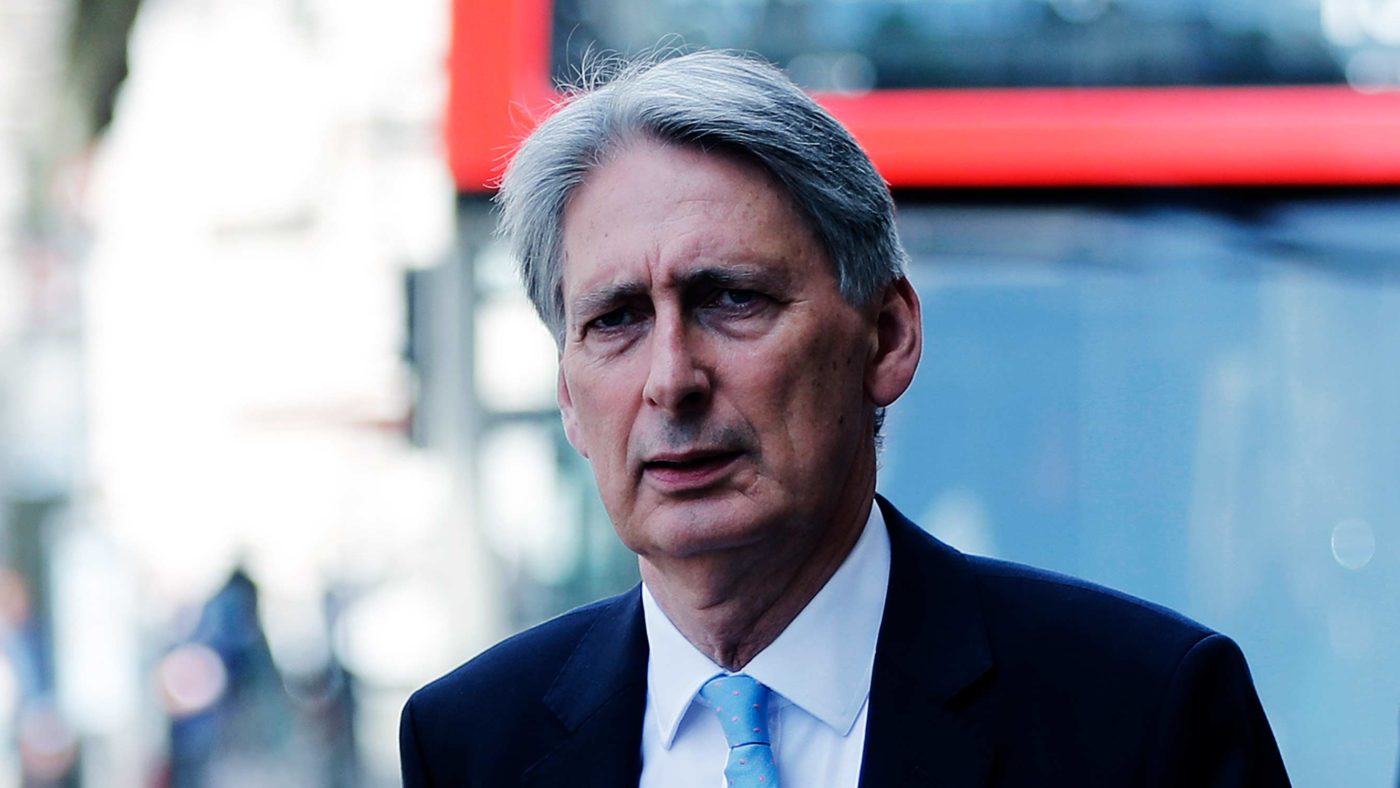Reading the Sunday papers can’t have been fun for Philip Hammond. After weeks of pressure from the health secretary and Number 10, it seems the chancellor has been forced to allow a big new spending pledge on the NHS to go ahead without any agreement yet on how it is to be funded.
The chancellor is so isolated on the issue because of the EU referendum. Some of those who would ordinarily be on the side of fiscal conservatism were also part of a Leave campaign that made promises about NHS funding. His case is further weakened by the fact that his prudence is seen as nothing more than pessimism about Brexit. Many of his own colleagues now seem to loath him for doing his job properly.
But whatever you think of his views on Brexit, the chancellor seems to be the only person in government sticking up for taxpayers and the nation’s finances.
Talk of new NHS funding being paid for with the “Brexit dividend” only makes things more aggravating for the chancellor. Such claims take the public for fools, and it is Philip Hammond who is going to have to find the money to plug the gap.
How is the chancellor expected to explain to the public that he has missed his deficit targets, or has raised their taxes, or (as is likely) both, when people have already been told that Brexit will pay for most of it?
Let’s just step back for a moment and consider the state of the public finances. Philip Hammond has been perfectly reasonable in his approach. When he became chancellor he actually eased up on the deficit reduction plans, pushing back the target of a balanced budget into the middle of the 2020s, as he rightly identified that the uncertain outlook after the Brexit vote meant he needed more flexibility.
In March, the Office for Budget Responsibility expected the government’s target of a 2 per cent deficit by 2020-21 to be met with about £15bn to spare. Debt as a proportion of GDP was finally forecast to be lower this year than last, an achievement the chancellor was justifiably proud of. You might think that means we’re out of the woods.
You’d be wrong. Look closely at the figures and you will see that this debt-to-GDP milestone has only been reached by a hair’s breadth.
The OBR have politely pointed out that on an unrounded basis, the ratio is set to fall by just 0.05 percentage points this year. Just a smidge of a revision at the Budget will mean all those press releases proudly declaring that “debt is now falling” will have to be rewritten.
Governments tend to spend a bit more than they have pencilled in, and so the £15bn of “fiscal headroom” gave some leeway for a bit extra for schools here, a bit for housing there, and so on.
A large chunk of it will now be eaten up by a single announcement on the NHS, and if the economy performs below expectations the 2 per cent target might well be missed. That is before we even begin to consider actually balancing the books by mid-decade, a goal we were set to miss even before this new spending announcement.
Some have suggested paying for the NHS funding by freezing the tax thresholds once they have hit the manifesto pledges of £12,500 and £50,000. That comes nowhere near raising enough money.
It is also worth pointing out that those higher thresholds have not even been completely factored into the fiscal forecasts yet. The Office for Budget Responsibility reckon the government still needs to find an extra £1.4bn for the thresholds to reach those levels in 2020 as promised.
All of this means that the only way the chancellor is ever going to meet his fiscal targets is if the economy significantly outperforms the forecasts. Relying on that eventuality is not a responsible way to run the country’s finances. Is Philip Hammond really the only person left in government who understands this?
There seem to be a worrying number of people in Parliament and government who think the Conservatives can somehow ape Labour on spending. The folly of that view was obvious from Labour’s response to the announcement over the weekend.
When asked how much Labour would commit to the NHS now, the answer of Shadow Health Secretary Jonathan Ashworth was simply “more”. This Labour Party will always say they are going to give more, which means that all the Tories achieve by loosening the purse strings is to shift the centre of the debate further into opposition territory.
It seems likely that the only way the government can fill the hole it has just created in the public finances is by making most taxpayers contribute a little (and possibly more than a little) more from their payslip.
The Labour response will surely be that the government could reduce the burden on ordinary working families by making the rich pay an even higher share. The Tories could find themselves on the backfoot against Corbyn’s Labour Party on the issue of low taxes. What an absurd – and unforced – error that would be.
The Tories’ good news NHS story has landed in the middle of summer (and hasn’t landed especially well). Come budget day, more taxes and more borrowing will likely make headlines. Until then it looks like the Treasury will be made to fob off all questions about the plan for funding the announcement. The chancellor will rightly be fuming.


